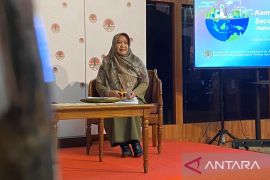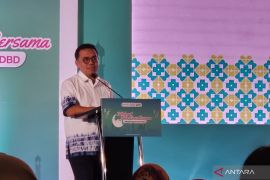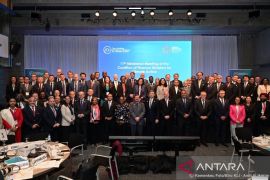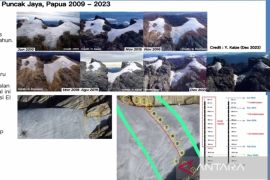"The president has issued an overall policy on how Indonesia will combat climate change. What he has done today is a very positive step in making Indonesia a world leader in the fight against climate change," Minister Solheim said as quoted in a press statement of CIFOR (Center for International Forestry Research).
Solheim opened the conference on "Forests Indonesia: Alternative futures to meet demands for food, fiber, fuel and REDD+", hosted by CIFOR and in this video speaks of Norway`s involvement in the implementation of the bilateral agreement on REDD+, what Indonesia can learn from Brazil`s bilateral agreement and issues surrounding carbon offsets.
The Forests Indonesia Conference is expected to provide an opportunity for NGOs, development agencies, and government ministries to discuss these challenges.
It looks at the opportunities available to reduce deforestation rates, while at the same time expanding agricultural production to guarantee food security targets and promote economic growth.
President Susilo Bambang Yudhoyono on Monday (Sept 26) signed Presidential Decree No. 61 2011 on September 20 on National Action Plan to reduce Greenhouses Gas emission (refer as RAN-GRK).
Cabinet Secretary Dipo Alam underlined Indonesia?s unique geographic landscape that is very vulnerable to the impacts of climate change, which then motivate Indonesia to voluntarily contribute on prevention actions through climate change mitigation.
Each sector included in RAN-GRK were given a proportion on their contribution to the overall GHG emission reduction target of 26%/41%, as follows: Agriculture: 0.008 Gigatonnes CO2e (26%) and 0.011 Gigatonnes CO2e (41%); Forestry Sector and Peatlands; 0.672 Gigatonnes CO2e (26%) and 1.039 Gigatonnes CO2e (41%);
Energy and Transport: 0.038 Gigatonnes CO2e (26%) and 0.056 Gigatonnes CO2e (41%); Industry: 0.001 Gigatonnes CO2e (26%) and 0.005 Gigatonnes CO2e (41%); and Waste Management Field: 0.048 Gigatonnes CO2e (26%) and 0.078 Gigatonnes CO2e (41%).
(F001)
Editor: Aditia Maruli Radja
Copyright © ANTARA 2011











